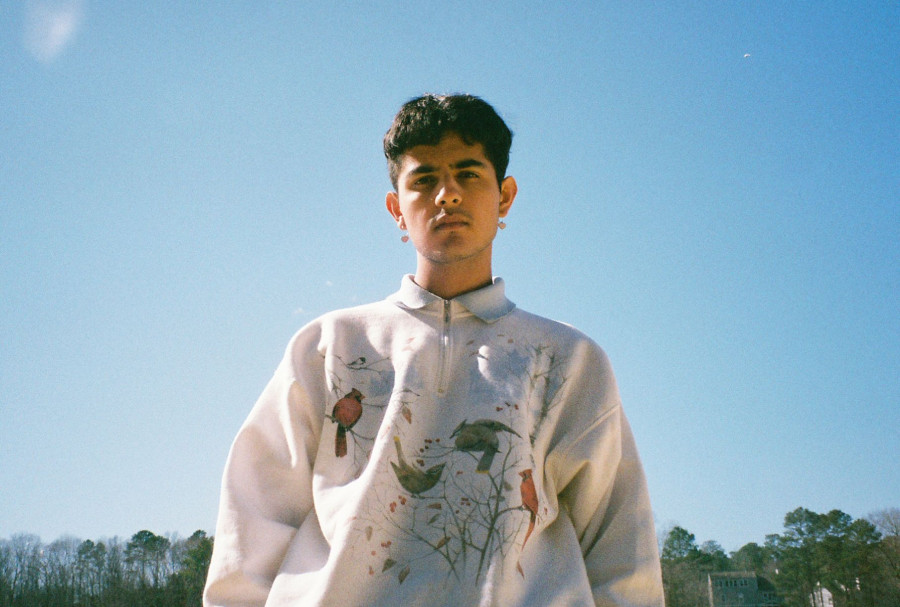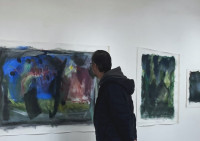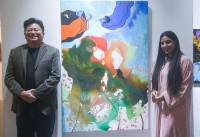Culture & Lifestyle
In the spotlight: Curtis Waters’ Stunnin’
Nepal-born Waters embodies a new wave of young, creative, independent musicians who are making use of social media to make their own way.
Shashwat Pant
“This still feels very surreal. It’s almost like a dream,” says Waters, who was born in Nepal and moved to Canada with his family when he was 10. Growing up in a Nepali household in a foreign land, Waters, at a young age, found refuge in music and took it as a medium via which he could harbour his artistic endeavours.
“But being from a Nepali immigrant family, my parents always want the best from me academically. They didn’t really understand my love for music at first. So I did it secretly in my room,” he says.
It was when he was 14 and in Nepal with his family in 2014 when he downloaded FL Studio on his laptop and started to make beats. After getting the hang of the digital audio workstation, Waters then grew a love for creating music like his inspirations Frank Ocean, Ian Curtis and Kanye West. He’d spend days in front of his laptop, clipping various sounds he’d find on the internet and create music.
Then in 2017, his family moved to North Carolina, US, and that’s when he really started to push hard to make a name for himself through music. “I used to stay up till 3 in the morning. I did get a lot of flak for doing that, but gradually I started to get better and my beats started to sell online,” says Waters. “That’s when I felt I needed to stick it out and do what I like doing. I also got the confidence to write songs, sing and rap. I liked expressing myself through music.”
Rather than spend time on Netflix after school, like his peers, he started spending time on YouTube going through tutorials on how to make beats and create music. “At home I made music. But it was outside where I learnt how to express myself. Learning new things from people in school, at work and with the relationships I’ve had in the past,” he says. “My lyrics, you see, are a product of all of my experiences.”
Another one of his songs, System, which was released a week ago on YouTube, has simple but powerful lyrics: it talks about imperialism, police brutality, and capitalism, things he says he’s seen upfront while growing up in Canada and the US.
“The Rolling Stones magazine article made it look like that System was about me not wanting to be associated with record labels. Yes, that was one aspect of the song but it has deeper meaning,” he says.
When asked why he chooses to be called Curtis Waters, he says doing that helps him get noticed. “When you see a brown kid with the name of an old, white person, you’re bound to get curious, right? That’s why I chose Curtis Waters. It’s also a combination of two of my favourite artists Ian Curtis and Frank Ocean.”
Waters is part of a new generation of artists born out of, and raised by, the internet. He first got noticed through TikTok, a Chinese video-sharing social networking service, where he released ‘Stunnin’ in April. If anyone visits his TikTok page, one will see old videos of him dancing with his brother with the intro of the song playing in the background. He made similar videos for three months as a marketing experiment to get noticed.
“The earlier videos didn’t really do well. It would get views but not as much. Then I started to introduce myself on the video itself. Started dancing better and after three months of grinding, one day I woke up to over 150,000 views on TikTok overnight. It was amazing,” he says. Since then, many other TikTok users have used the song to make videos—almost more than 358,300 times.
@curtiswaters lemme know what u think of my song! ##music ##nc ##fyp ##stunnin ##curtiswaters
♬ Stunnin' (feat. Harm Franklin) - Curtis Waters
He says that apart from his three-month grind, TikTok’s algorithm also helped him a lot. “If your content is engaging you’ll be getting views on it. At one point I had less than 100 followers and still managed to get a million views on TikTok.”
In this age of the internet, filled with immense possibilities, Waters calls himself a DIY (do-it-yourself) artist. “The internet is great for music producers like us. There is no gate keeping: if your content is good and engaging, it's sure to reach out to the masses,” says Waters. “You can't say that you don’t have opportunity. If you have the internet, you have everything, that’s what I believe in.”
Currently, he’s working on releasing an album, called ‘Pity Party’. Other tracks on the album are as different from each other as the first two tracks: while Stunnin’ is pop-rap with a groovy beat, System has a more pre-revolutionary feel to it, with simple, strong lyrics. This diversity is a conscious choice as he doesn’t want to tie down to a specific genre as that limits creativity. The rest of his album will be more introspective, he says, with some emotional rap and also some alternative and indie feel. “Music to me is exploring different things and expressing what I feel. People will get to know my diversity once the album is out around the end of 2020,” he says.
He knows that public opinion can change in an instant, and that fame is fleeting, which is why he doesn’t let the comments he is getting right now affect his ego. “I have actually been feeling a bit anxious. I’ve been the same guy all my life. And this is all new to me. Getting messages from people I idolised growing up is quite new. But I can't wait to see what happens next,” he says.
He’s also been getting a lot of love from Nepal ever since ‘Stunnin’ got its stunning release. He says he’s been flooded with messages on Instagram and Twitter from young Nepalis from Nepal and Nepalis from all across the globe.
“People have been incredibly supportive. They are treating me like how I was treating Arthur Gunn. I appreciate the support I have gotten and all the good messages,” says Waters. “I didn’t think that my type of music would be interesting to people in Nepal but they seem to like it.”
When asked if he’d known about the rap scene in Nepal, Waters said his father showed him a few clips and that he liked the work of Yama Buddha. “I’m in the unknown but I’d like to explore how it is there,” says Waters.
He says that he intends to come to Nepal, but he’s still unsure if he’d want to do a show here. “I'm not a great singer, nor am I a great rapper. I’m more of a music producer who knows how to make himself sound good,” he says. “I’ve not done many shows so I don't think I'd be open to doing one in Nepal anytime soon. I don't want to put on a bad show. I want to make sure that when I’m on stage, the people that are there should enjoy what I put out there.”
When asked what message he would like to give out to young aspiring music producers in Nepal, he says that there is no perfect formulae. “This fame I am getting right now is six years of hard work, to get this one song noticed. Making music is not hard. It's harder to get it out into the market,” he says.
He adds that hard work and passion are essential to keep you pushing, but in this age of the internet, what is also important is how you make opportunities for yourself. “You have the internet, use it and work hard. Don't say you can't do it because you’re in Nepal. The internet has made sure that there are no gatekeepers when it comes to music. So learn how to use it to your advantage,” he says.




 8.83°C Kathmandu
8.83°C Kathmandu















